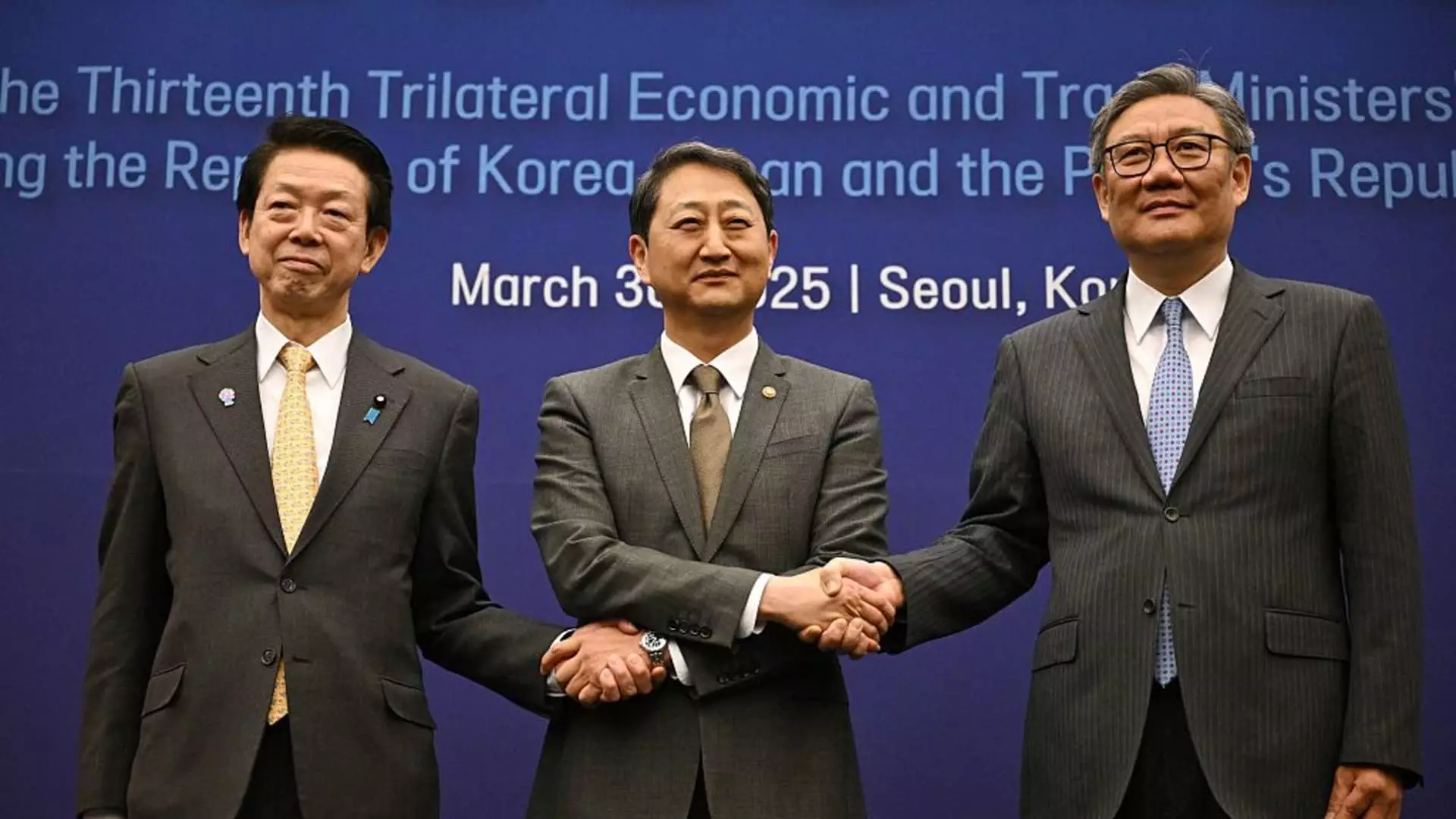In an unprecedented move to combat the complex web of global trade disruptions, South Korea, China, and Japan embarked on their first economic dialogue in five years. The gathering signifies more than just a routine summit; it is a desperate plea for solidarity amidst the looming shadow of rising tariffs imposed by the U.S. government. In an era where the geopolitical landscape is shifting at an alarming rate, these powerhouse nations are recognizing the dire need for collaboration to safeguard their economic interests.
Trade ministers from these three nations convened to explore the prospects of a comprehensive free trade agreement (FTA), acknowledging the pressing need for enhanced trade cooperation not only amongst themselves but also within the broader framework of the Regional Comprehensive Economic Partnership (RCEP). South Korean Trade Minister Ahn Duk-geun’s call for stronger implementation of RCEP showcases a forward-thinking approach that is essential for adaptive economic strategies in a rapidly evolving international marketplace.
Addressing Historical Frictions for a Prosperous Future
However, the road to economic integration is fraught with historical grievances and territorial disputes, which have historically impeded progress among these nations. The specter of Japan’s controversial release of wastewater from the Fukushima nuclear site and age-old territorial conflicts serves as a grim reminder that political tensions can easily overshadow economic interests. It raises pressing questions about whether diplomatic negotiations are robust enough to withstand these underlying issues or if they will derail the potential for a united economic front.
The stark reality is that while these ministers discuss lofty trade ideals, unresolved territorial disputes loom over their heads like a dark cloud. Is it feasible to expect significant progress in crafting a trilateral FTA when the past’s discord continues to cast long shadows over current negotiations? The skepticism surrounding a successful agreement is palpable.
Economic Powerhouses Facing External Challenges
As they brace themselves against U.S. tariffs, which have already been described as akin to economic warfare, these countries must also reflect on their internal dynamics. Tariffs imposed by U.S. President Donald Trump are a clarion call for these nations to reassess their trade policies. However, this external pressure could very well lead to greater cooperation if handled deftly. The looming threat of a potential 25% import tariff impacting their automotive sectors is particularly alarming. With South Korea and Japan being two of the largest exporters of vehicles to the U.S., the economic repercussions are potentially devastating.
But rather than merely reacting to these tariffs, South Korea, China, and Japan possess the opportunity to leverage this adversity into a powerful alliance. By fostering a spirit of collaboration and mutual economic growth, they can eschew dependence on the unpredictable whims of foreign policy that threaten their stability.
A Pivotal Moment for Asian Trade Dynamics
As the impending ministerial meeting in Japan approaches, the world will be watching closely. The dialogue represents a pivotal moment for Asian economic dynamics, one that could echo through the corridors of global trade if framed correctly. The opportunity for bolstered cooperation exists, but it demands genuine political will and the courage to confront cumbersome historical grievances. In this rapidly evolving geopolitical theatre, the unity of these three nations could be a powerful counterbalance to the challenges posed by the West, potentially shifting the global economic landscape in unforeseen ways.
The stakes couldn’t be higher, and the world is eager for tangible results.

Leave a Reply